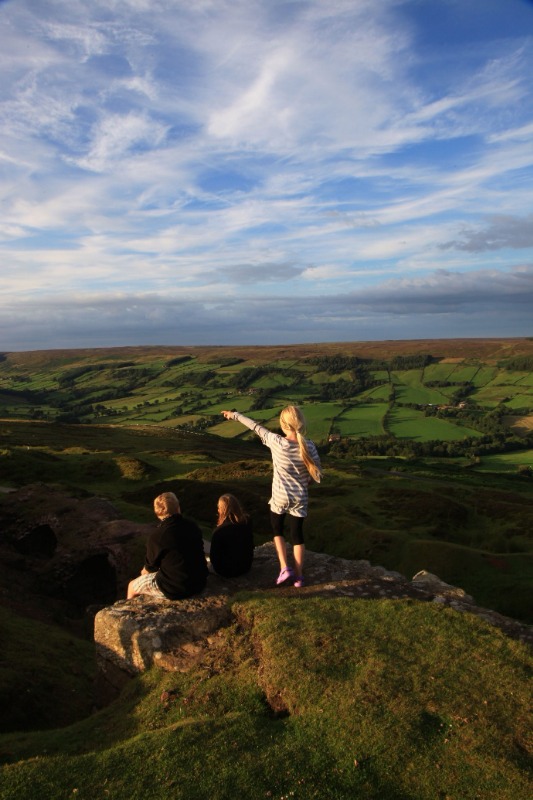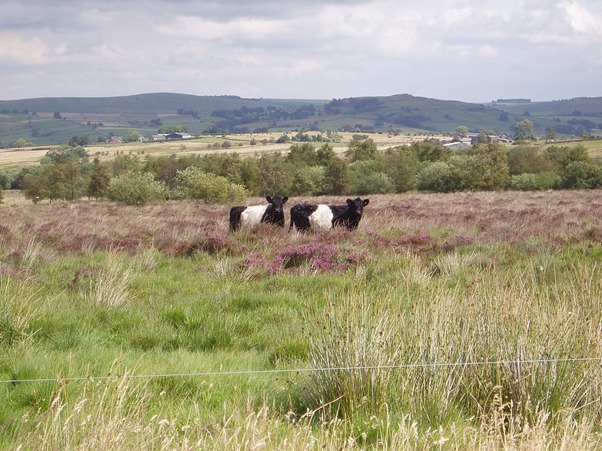search
date/time
 | North East Post A Voice of the Free Press |

Andrew Palmer
Group Editor
4:00 AM 17th July 2021
frontpage
Weekend Interview: Andrew McCloy Chair National Parks England

Lake District Derwentwater
“We enjoyed getting to know all these wonderful places from the Peak District to the Lakes and down to the Southwest. And so, from an early age, I began to love what they offered and, just as important, I was taught to appreciate them.
We’ve all realised just how important landscape is, the importance of green space, the outdoors and nature, and I think the National Parks epitomise that.”
“50 years later I am not just Chair of the original national park here in the Peak District, but I am very proud and humble to be Chair of the body that represents all ten”.

Andrew McCloy
“If we have the right apparatus, especially in our role as educators, we can influence a new generation of visitor, especially young people and show them how to behave in, and understand, the countryside. Around the UK we can demonstrate how to live a more sustainable life, anything from transport to small scale renewables and how to farm in a nature friendly way.”

Castlerigg Stone Circle, near Keswick in the Lake District National Park, Cumbria. It is one of Britain's earliest stone circles
“If you compare the Cairngorms to the Norfolk Broads or The New Forest and Yorkshire Dales, they are unique landscapes, all of them are incredibly special. Particularly at this moment, as we are hopefully coming out of the pandemic. We’ve all realised just how important landscape is, the importance of green space, the outdoors and nature, and I think the National Parks epitomise that.”
It’s ironic, the National Parks have always been there. Andrew informs me that the Peak and Lake Districts have been designated as National Parks for 70 years, it is not as if suddenly they were on the scene.

Peak District – Dovedale – Credit: Meriel Harrison

NYM - Chimney Bank Top, Rosedale, Credit: North York Moors National Park.JPG
“I understand the challenges and to some extent it links back to the Landscapes Review. One criticism levelled at the National Parks, which I think has some validity, was for too long we have had a very established familiar audience, mainly white, middle class, car owning, and those visitors were comfortable and knowledgeable about the outdoors, which is great I don’t knock them, after all I am from that stable myself.
“But National Parks are for everyone and that is very much our position at National Parks England. We concur with Julian Glover, who wrote the Landscapes Review, that we need to be open and more welcoming and be there for all of society. Our task is to find ways to remove some of the barriers.
“These are sometimes physical barriers, especially if you are not a car owner. as public transport to National Parks can be poor but there are cultural barriers too. So, our mission is to make national parks welcoming families and individuals from whatever ethnic background or income level.”

Grazing with Belted Galloways on the Warslow Estate (Credit: Peak District National Park Authority)
“We need to build on best practice, and we are on the case. The pandemic has helped us on our journey, the challenge though is to try and retain our new audiences that have discovered national parks for the first time.” Andrew explains he and the other 9 Chairs are looking at several initiatives. Some have been running for a while and they are being pepped up. The Mosaic Project, which ran across all national parks, is still ongoing in the Peak District is very much looking to build culturally diverse links especially with urban audiences.
“We are looking where we have had successes and then to roll out the programmes.”
There is a new initiative Andrew explains. The National Parks are partnering with the Youth Hostels Association on Generation Green. This is a project aimed specifically at children and young people across the country, trying to find routes for them to give them a chance to sample and enjoy a national Park or protected areas, like Areas of Outstanding Natural Beauty, and make a connection with nature.
The National Parks are trying also trying new approaches through several local initiatives being developed with residents and nearby communities. However, it requires resources, which Andrew says is a message continually being delivered to Government.
“We are saying to the Government loud and clear - if you want us to up our game and deliver, we need the resources, and the Government knows that a better resourced National Park can deliver more.”
Most of the funding still comes from Defra but over the last ten years it has reduced 40% in real terms. So, the National Parks have had to make almost year-on-year cutbacks. The last two years have seen flat cash settlements, but not been index linked, leading to more savings to cover inflationary costs.

Cycling in the North York Moors
(Credit: Chris J Parker North York Moors National Park Authority.)
“Most National Park authorities are looking to set up a dedicated charity. We have done it here with the Peak District National Park Foundation and The Lakes, Dartmoor and North Yorkshire Moors have done similar.
“A charity is a vehicle to attract funding we can’t access as a public body. We are also looking, with some success, at the commercial route. In the Lake District, for example, the business services and activities are now very well developed.
“Elsewhere we have been ramping up how we look at donations, giving and sponsorship. But our mainstay funding is from Government which we rely on year-on-year."
The amount of money we spend in the Peak District on litter clearance could fund a full time ranger for a year. £40000 that is how much we spend on clearing visitors rubbish away.
Andrew is clear about the role National Park Authorities play as influencers and educators. The National Parks don’t own too much land but administer grants and funds and advise land managers and farmers on sustainable techniques.
Another angle often overlooked, is using the National Parks as a platform to show the millions of visitors how land can be more sustainably managed and how people can travel and enjoy this landscape in a more sustainable manner.
In terms of landscape, the National Parks have a key influencing role especially, as Andrew points out, here in the north.

North York Moors
For anyone wanting to become a volunteer the first step is to look on the website of your nearest National Park. There is a volunteer coordinator who will find a role or level of contribution that will fit your personal circumstances because the National Parks recognise some people can only give a little bit of time. It doesn’t matter what level of contribution you can give in time as the National Parks take pride in the ‘We welcome everyone’ message.
“We have a lot of peat bogs and upland moors, and peatland restoration is already making a vast contribution towards mitigating climate change.
"The carbon sinks in the Peak District and parts of the Dales and the Moors alone are making a huge contribution. National Parks have a vital role to play, and Defra understands that. We already get a lot of support and interest from Government in our efforts to rewet the moors and to stop the erosion that has been going on for centuries.
"There are practical things we are doing as well as influencing and educating.”
Speaking of educating I touch on a personal bugbear of mine; the amount of litter we see spread throughout our hedgerows is getting worse. I’ve obviously touched a nerve.
“Like so many other authorities we have been staggered by the amount of litter that has been dropped and the behaviour by some people. It must come down to education. Our many rangers and volunteers try speaking with people and guiding them into acting responsibly, not just dropping litter but understanding the impact from leaving BBQs smouldering. We need to change behaviours. Some of it comes from educating a new audience to take responsibility as individuals for their behaviours.
“We have seen urban parks trashed and beaches too. There is a wider issue here for society about taking personal responsibility. There is a bigger job for government and society. We do what we can locally, sending people home with positive messages but at the end of the day although we have to, we are not here to clean up people’s rubbish.
“We would rather be spending money on wildlife improvement and so forth.”
It is here that Andrew drops in a shocking fact.
“The amount of money we spend in the Peak District on litter clearance could fund a full time ranger for a year. £40000 that is how much we spend on clearing visitors rubbish away. It is not sustainable, and we can’t keep going with.”
That is just the Peak District! We have a discussion and share views about understanding the Countryside Code and the throw away materialist culture that has developed. It must start in the classroom with some form of citizen responsibility.
.jpg)
Summer meadow near Muker (Tom Collier)
Andrew believes that ultimately the polluter must pay, and the manufacturers and fast food outlets must contribute to the clear up.

©Northumberland National Park - Hadrian's Wall looking north
Andrew gives another example. “In between lockdowns, we had a considerable number of new audiences coming out into the Peak District and other national parks. Our rangers told me they were coming across whole camps. By that I mean tents, sleeping bags, cooking stuff, just left abandoned in the middle of nowhere. The buzz word was ‘fly camping’.
.JPG)
YDNPA Malhamdale, Ribblehead Viaduct (John Lockwood)
Broads
Dartmoor
Exmoor
Lake District
New Forest
North York Moors
Northumberland
Peak District
South Downs
Yorkshire Dales
"The rangers were convinced and were probably right, it was due to festival mentality. Young people who might have been at Festivals but otherwise were in the middle of a National Park, leaving their stuff to be cleared up because that’s what they do and that’s what they have always done. That can’t carry on.
“They expect, because they pay say £20 for a tent, that it’s not worth taking it back, someone else is going to clean up the mess. But this mess is a danger to wildlife and other users and causes an eyesore across our protected landscape. Of course, a smouldering BBQ can torch a whole moorland if the conditions are right and can be catastrophic.
“We welcome the recent announcement by the Co Op stores to ban the sale of disposable BBQs in and around the edge of National Parks in the north. It’s a first step and others must follow suit. I would rather single use disposable BBQs were outlawed altogether apart from maybe people’s back gardens because they are a menace in the countryside. So, a twin approach is needed: education and enforcement."
With that of his chest Andrew concludes with something that is uplifting and shows the power of education. He describes one of the inspiring moments as Chair of the Peak District when he went out with one of the new junior ranger teams, a bunch of young secondary school students in their early teens from the edge of the Peak District who work with a full-time ranger doing small bits of conservation. “I was thrilled at their enthusiasm, their wide-eyed eagerness to get involved and about the fact that ultimately we were shaping the next generation to love their landscape to act responsibly and to look after it in the long run and passing on that legacy.”
Also by Andrew Palmer...
Classical Music: Tchaikovsky & Korngold String SextetsClassical Music: Gabríel ÓlafsThe Value Of Luck: In Conversation With Martin VenningMozart: Piano Concertos, Vol. 9Classical Music: Ravel, Lennox Berkeley, Adam PoundsMore in this series...
The Weekend Interview: Mel Hird The Voice Of ReasonThe Weekender: Lovingly Artisan The Secret Behind SourdoughWeekend Interview: Discovering Your Unique Blueprint To Food IntoleranceTennis Superstar Jordanne Whiley MBE Talks Tokyo ParalympicsThe Willard White Interview: A Secret Rapper?Weekend Interview: Pork Pies - How Do You Eat Yours? Warm, Cold, With Brown Sauce Or Something Else?Weekend Interview: Ben Crick Wielding His Baton Over A New OrchestraInterview: Traditional Balsamic Vinegar As A Symbol Of ExcellenceWeekend Interview: The Joys Of Our Hay MeadowsWeekend Interview: From Bump To Baby. Breaking Down Taboos Of PregnancyWeekend Interview: A Day In The Life Of ABP Humber’s Marine Engineers